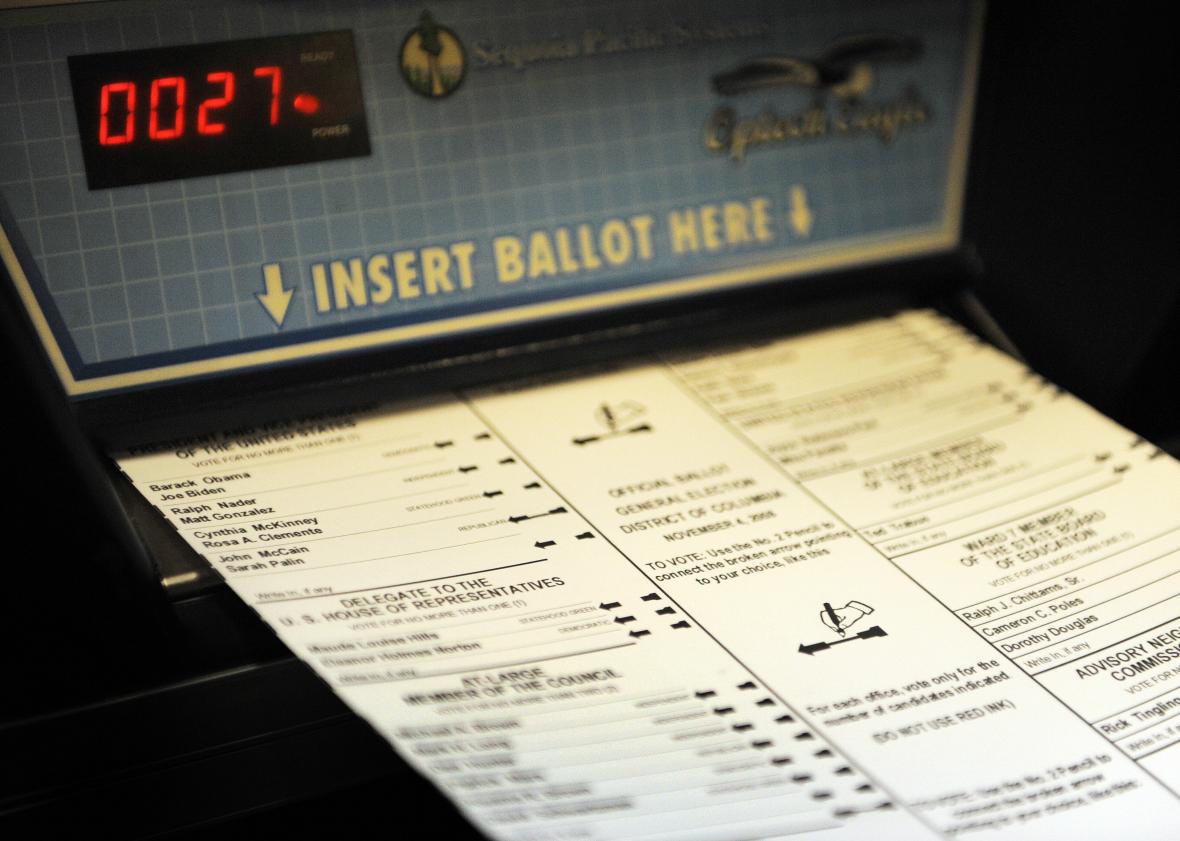Election officials in Oklahoma, Louisiana, and Texas say they have denied requests from the Russian consulate to send observers to polling places next month. The Russians, it seems, wanted to study the “US experience in organization of voting process.”
In Russia’s elections, evidence of fraud and ballot-stuffing is widespread and obvious, and the country has frequently been subject to criticism from U.S. officials, including Hillary Clinton. So this is an obvious troll by the Russian government. The U.S State Department agrees, dismissing the request as “nothing more than a PR stunt.”
Foreign missions regularly observe U.S. elections, as they do in many other countries. During this year’s vote, the Organization for Security and Cooperation in Europe and the Organization of American States will be dispatching teams throughout the country. The OSCE mission caused a bit of a flap four years ago when Texas’ attorney general threatened to arrest any monitors attempting to enter polling places, leading to some disingenuous tsk-tsking from governments that are usually on the receiving end of election monitor criticism, particularly Russia.
Obviously there’s a big difference between the OSCE, a credible body of which the U.S. is a founding member, and Russia, which this year has been accused of an unprecedented attempt to interfere in the U.S. election. It’s also more typical for governments to monitor foreign elections as part of multilateral groups, like the OSCE or OAS, rather than as an individual government delegation.
I think there’s value in the U.S. showing that it has nothing to hide and is happy to accept the sort of scrutiny that it demands from other countries, which is why I think it’s unfortunate that many states now have laws on their books prohibiting foreign monitors. But given the circumstances, I get why officials wouldn’t want a mission with such an obvious agenda hanging around polling places.
Contrary to the fears expressed in Texas in 2012, there’s little risk of monitors actually interfering with the vote; the security measures of the U.S. election process are robust enough to prevent that. More likely, Russian observers would try to score ticky-tacky propaganda points by seizing on some minor incident or discrepancy and pointing to it as evidence of widespread voter fraud. (Kremlin-funded outlets like Sputnik and RT have given heavy coverage to Donald Trump’s voter fraud fearmongering.) On the other hand, Russia is scoring ticky-taky propaganda points from the fact that the monitors have been “barred” by the U.S. authorities. There’s no way to win this one.
